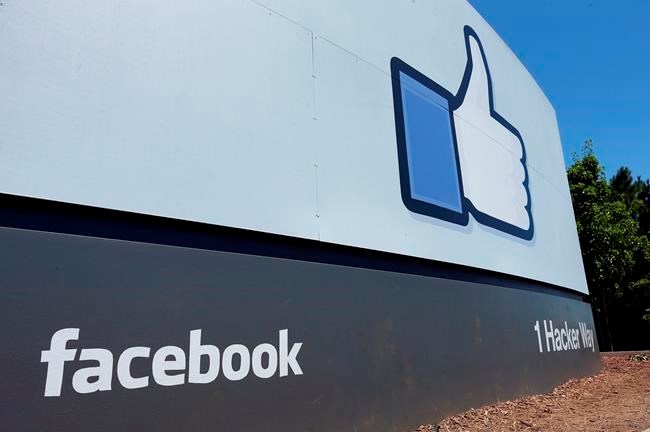The Canadian Association of Journalists said Facebook Inc.'s recent policy to better protect journalists from harassment is a welcome change, but more work needs to be done by the technology sector at large.
The global social network company announced earlier this week that journalists will now be considered "involuntary" public figures rather than just public figures.
Facebook said the designation means journalists will be protected from more forms of harassment, such as calls for death, claims about sexual activity or religious identity and female-gendered curses when used in a derogatory way.
"We ... recognize that becoming a public figure isn’t always a choice, and that this fame can increase the risk of bullying and harassment — particularly if the person comes from an underrepresented community, including women, people of colour or the LGBTQ community," said Antigone Davis, Facebook's global head of safety, in a statement announcing the changes.
"Consistent with the commitments made in our corporate human rights policy, we’ll now offer more protections for public figures like journalists and human rights defenders who have become famous involuntarily or because of their work."
The change comes as a former Facebook data scientist testified to U.S. Congress with accusations that the company consistently pursued profits and engagement over promoting safety.
Facebook has pushed back against the whistleblower's claims.
The policy change also comes after the CAJ condemned a Twitter post by the leader of the People's Party of Canada urging his supporters to "play dirty" with specific journalists who had asked about the party’s ties to the far right.
The CAJ said dozens of reporters were inundated with intimidating emails and social media messages threatening violence, sexual assault and death as a result of the tweet by Maxime Bernier.
Many media organizations, including The Canadian Press, condemned harassment against journalists after the incident.
"A strong, diverse media is vital for a well-informed, democratic society," read the statement, which was signed by dozens of Canadian media organizations.
"While criticism is an integral part of journalism and democracy, there can be no tolerance for hate and harassment of journalists or for incitement of attacks on journalists for doing their jobs."
CAJ president Brent Jolly said Thursday that fixing the issue of hate and harassment on social media will be a "marathon exercise" requiring teamwork from tech giants.
"The issue of online hate and harassment directed toward public figures, which includes many of our member journalists, is a comprehensive social problem that will require co-ordinated efforts on the part of many organizations and institutions to resolve," said Jolly.
"As developments over the last few weeks have laid bare, tech companies such as Facebook have a critical role to play in implementing policies and practices that prevent the free flow of hate and harassment to take place on their platforms."
Davis said working with multiple groups was an important part of developing Facebook's strategy around harassment.
"In updating our policies, we consulted a diverse set of global stakeholders including free speech advocates, human rights experts, women’s safety groups ... female politicians and journalists," said Davis.
"We will continue to work with experts and listen to members of our community to ensure our platforms remain safe."
Jolly said that while Facebook's move is a positive step, many in the industry are also calling for social media networks to improve their responsiveness when attacks do happen.
— With files from The Associated Press
This report by The Canadian Press was first published Oct. 14, 2021.
The Canadian Press



